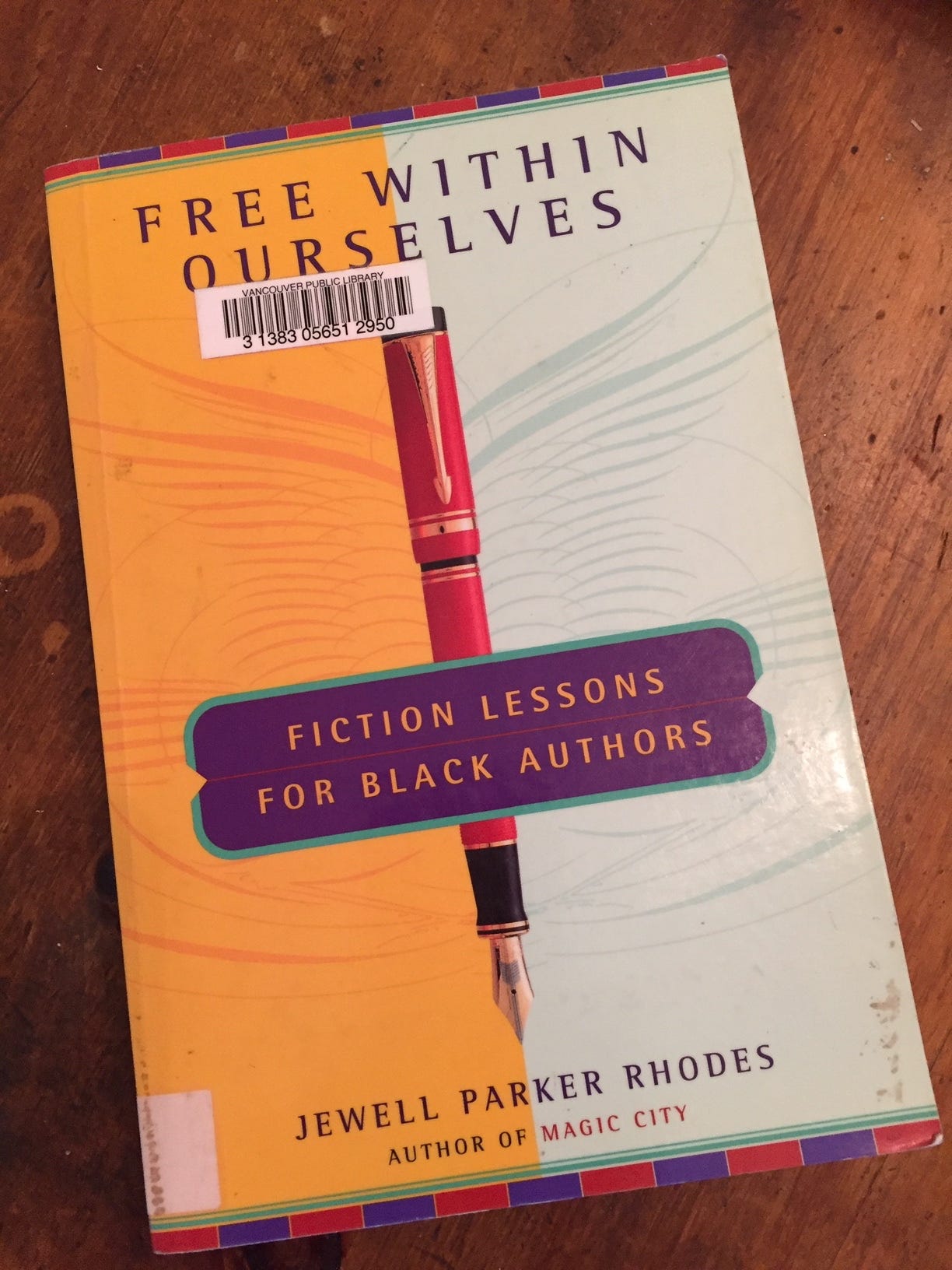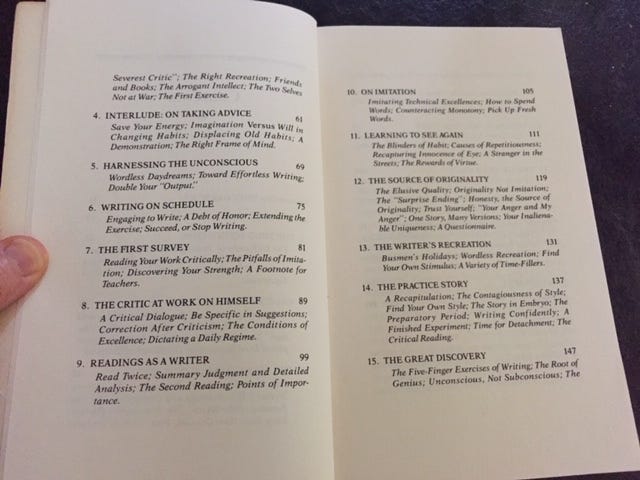Writing-Book Reviews - Part 2
Books for "beginners," from Jewell Parker Rhodes, Dorothea Brande, and Rita Mae Brown
Finding the best writing books is key to self-educating.
My son says, “There is no such thing as a self-educated person!” and he is right; what he means is that we are always learning from somebody. He’s a singer, and points out that so long as a singer is listening to anyone else’s work, they are learning. Imagine never hearing another singer… and trying to figure it out for yourself.
So as writers, we learn “story” from picking up every snippet of human story and history around us. By going for walks, we absorb how to create “setting”… by listening we learn “dialogue”…and so on.
Reading books written by other writers is possibly the most basic way to learn, even before we read (and apply analysis to) works of fiction and memoir, and begin to work and grapple with our own stories and process.
Let’s start with my first book; surely it was a bible to me. I read it multiple times, highlighting, dog-earing (yes, I do that—sorry!) and mulling over. And that book was Dorothea Brande’s Becoming A Writer.
For the beginning writer, the book is gold, speaking to the importance of developing daily habit, even if only twenty minutes, and the need to separate the “writing” self from the “editing” self. It’s old now, published in the 1930s, long before anyone was talking about right and left brain. But Brande went there.
It continues to be brought back into print. You can find a copy on abebooks.com. (My principle with second-hand books is to buy those of either rich or dead writers; otherwise I have to say I am very reluctant to buy second-hand, unless the book is out-of-print. As a writer, it’s imperative to support each other.)
Here’s a photo of part of the TOC to get a feel for what she has included.
Next, the book from which I shared an exercise in the June 2021 newsletter: Free Within Ourselves: Fiction Lessons for Black Authors, by Jewell Parker Rhodes.
This is supposed to be a book for those starting out. It has a supportive and encouraging tone, similar to Becoming a Writer. However, writing paths being what they are—rather recursive—it’s a good read for those who are needing even words to remember why we do this thing.
The early chapter, “Getting Ready to Work,” with the exercises she suggests for your early-writing-days journal, is rich with ideas. This section alone has such value.
Another stand-out piece is a bibliography of books by African-American writers, published from 1800 to present—a most excellent starting place to delve into what has been published in the past. There is also a chapter of advice from a number of Black writers, and a final chapter on resources. Other chapter headings are what you’d expect on elements of fiction: Creating Characters/Plot; Point of view; Setting; Dialogue…
A second section it titled “Spiritual Preparations” with subtitles of “Unearthing Tales” and “How to Keep Going.” And I find this section so rich, too. Every writer needs to develop their understanding of tradition—their own and others—and their place in it. This is key to developing who you are as a writer… which is also key to the “how to keep going” piece, down the road, good days and challenging days. Altogether, this is a solid book about writing, and I was happy to discover it.
Another staple of my writer-reading life as a new writer was Rita Mae Brown’s, Starting From Scratch: A Different Kind of Writers’ Manual. Like other writer’s books in this list, this is part memoir, part instruction. Brown shares what she sees as foundational studies for the writing life; that chapter pushed me to study Latin for a couple years, and yes, it did grow my language capacity. There’s an entire chapter in Brown’s book, on understanding and making use of the subjunctive, even in English. I was very young when I first read this book, and had not finished high school. The book filled many knowledge gaps for me, and would have even if I were older and had been writing for awhile. She includes a complete reading list, that in itself, would be the beginnings of exploration of literary traditions.
Brown shares her thoughts on what sorts of day jobs writers might hold—and has strong feelings about employment being unrelated to writing—to save “writing energy” for writing. I have mixed feelings about this, as I feel that the more you write, the more you are able to write; that writing takes a certain type of thinking and observation—and we can never have too much of that type of thinking, observing, indeed LIVING.
I think that what she means by this (forgive me, dear Ms. Brown if I’ve truly misunderstood!) is the idea not to do soul-depleting writing-connected work… Although I love teaching, for instance, I’ve had to walk away from the academic sphere. Likewise, working as a journalist in an area that is not really meaningful to you... Yes, that can “waste” the energy you need to write the novel or the nonfiction about the topic you are passionate about.
She recommends you do house renovating, car repair, work with your hands. Whether or not you agree, her point is worth mulling over. I worked 55 hour weeks, standing and exhausted as a hairdresser when I started to write. It was not intellectually stimulating, but it was draining to entertain or provide counsel to clients all the long day, while dealing with vanity… It was not ideal. But I still managed to follow Brande’s idea that even a little writing daily was key.
Last note:
I devoured monthly issues of The Writer Magazine (out of Boston for over 100 years now). Life has come full-circle for me on this one, as I’ve published articles with them.



